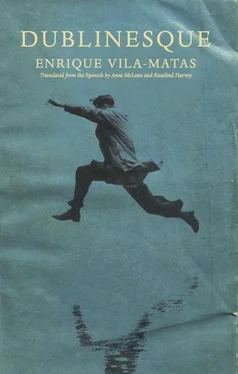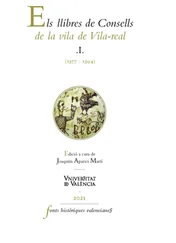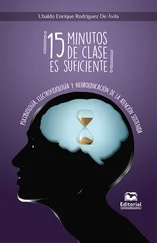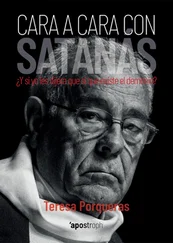Two whole days of certain amounts of anxiety.
During those days, moments of intense impatience and bewilderment. Like a good hikikomori , Riba believes the emails he sends will always be answered immediately. And it rarely happens. With Nietzky he’s been left feeling more disconcerted than he should be, knowing as he does that his young New York friend has never been a man of instantaneous email replies.
He spends two days waiting for the reply. And finally even Celia seems to be waiting for Nietzky to deign to reply, perhaps because she wishes with all her heart that her hikikomori husband would take some sort of exercise for once — even if it’s only getting onto a plane — and get as much air as possible in Dublin.
From time to time, over these two days of waiting, Celia expresses an interest in knowing if his friend from New York, young Nietzsche — she calls him this by mistake, without malice — has shown any signs of life.
“No, not one, it’s as if the earth has swallowed him up. But he’s already promised to come to Dublin, and that’s enough,” Riba replies, hiding from Celia his fear that Nietzky might not like, for instance, the idea of having to come up with ideas about how and where to hold the requiem.
When finally, after two long anxious days, Nietzky’s reply arrives, night has fallen in Barcelona, and Celia is asleep. So Riba can’t tell her the good news straight away. Nietzky writes from a hotel in Providence, not too far from New York, and tells him that, just as he said in his previous email, he’s really enthusiastic about repeating the trip to Dublin he took last year. Regarding the English leap , he says he thinks he knows what it refers to. And he remarks, with neurotic energy, that out of the Protestant and the Catholic religions, he prefers the latter: “Both are false. The first is cold and colorless. The second is forever associated with art; it’s a beautiful lie , that at least is something.” Then comes a disconcerting sentence: “You were Jewish, weren’t you?” And immediately afterward, for no real reason whatsoever, he starts talking about New York, and begins a long and unexpected string of personal complaints. He writes of the appalling changes the city is constantly subjected to and says his “own requiem for the days when, wherever you lived, you could always find a few blocks from home a grocery store, a barbershop, a newsstand, a dry cleaner’s, a florist, a liquor store, a shoe store. .”
Then there is a P.S. in which he mentions a meeting he’s set up with a society of Finnegans Wake fans, the strange and, according to Nietzky, not at all unsuccessful last book by James Joyce: “On Wednesday I’m going to a gathering the members of the Finnegans Society of Providence have held on the fourth Wednesday of every month for sixty-one years. They have a website. I rang them up and the guy who answered seemed very surprised by my Hispanic accent. He asked me if I had any experience with the text. I said I did. He said it wasn’t necessary. He gave me the address of the place they meet, which isn’t on their website: number twenty-seven and a half (that’s what he said), Edison Street. When I told him my Polish surname, he started doubting I was Spanish again.”
And not a word about the funeral?
Unsettled by this piece of information about the sixty-one years of the Finnegans Society, it takes Riba a while to realize there’s a P.S. to Nietzky’s P.S., which he doesn’t notice until he stops thinking about the curious coincidences between his parents’ marriage and that of the Providence Finnegansean society: they have the same number of years, sixty-one.
In the P.S. to the P.S., he reads: “There’ll be time for everything in Dublin, even I think to find a good place for our heartfelt eulogy for the glorious, annihilated age of Gutenberg.”
Perfect, thinks Riba. I hope that when Nietzky says the “heartfelt eulogy,” he’s doing so mockingly, as if sensing the most ideal way to handle the funeral is to do it parodically. I await his concrete ideas for the requiem, the ones I need. I couldn’t have a better collaborator for Dublin. And now that he’s confirmed his complicity he’s brightened up my day.
But it’s a strange way that Riba feels this happiness. He celebrates by starting to worry that his “there’ll be time for everything” might refer to going to lots of pubs in Dublin. If this suspicion is true, he’s in real danger. He could end up succumbing to the temptation of alcohol and drinking in a pub called the Coxwold, and then crying dejectedly, hopelessly drunk and full of remorse, sitting on the pavement down an alleyway, maybe consoled by Celia, or by her phantom, since Celia won’t be going to Dublin, but her phantom might very well do so. .
Enough, he thinks. These are ridiculous fears. And he stops being paranoid. Although his strange way of celebrating Nietzky’s reply doesn’t stop. Because now he starts to celebrate Nietzky’s complicit wink by imagining that it takes the color and weight away from life and strips away almost everything until it seems like a delicate shadow, lit by a distorted light, an imaginary anemic lunar shining. This shadow is Riba himself. And it remains logical that this is what he is. After all, doesn’t he now just seem like a poor old man, a simple assistant to Nietzky in this whole story?
On the trip to Dublin, Nietzky sees himself acting solely as his friend’s protector over there. Riba has secretly handed command of the trip over to him. It matters little that Nietzky’s actually an inexperienced young man. A few weeks ago, in spite of Nietzky’s age, Riba secretly named him “his second father.” And the thing is that he has a very similar relationship with Nietzky to that which he’s had his whole life with any “paternal figure”: when he’s with him, just as with his father, he’s nearly always surprisingly meek, and despite being almost sixty, open to all kinds of instructions and orders.
In fact, he feels a quiet and huge fundamental admiration for his father as well as for Nietzky, and an infinite sense of calm in knowing he’s at their service, knowing he’s controlled and guided by their ideas. He doesn’t know any other father as conscientious as his own. Nietzky, meanwhile, has no idea what it means to act as the head of a family; maybe this is why he seems ideal as a second father. They complement each other: the paternal shortcomings of one are compensated by the excesses of the other.
In any case, it’s clear that we’re dealing with quite an embarrassment of fathers. Maybe caused, as he comes to think more and more insistently, by the fact that he doesn’t know himself. He doesn’t know himself at all. Because of his brilliant catalog, he doesn’t know who he is, and instinct tells him it’s unlikely he ever will. And it’s likely that it’s due to this self-neglect that the need for protection from certain heights arises, for protection from those summits supposedly inhabited by a warm — and in this case two-headed — father, good-natured at times and at others a talented, constant creator of neurotic excitement in New York.
Maybe he has a vague yearning for a concealed architect of his days, and so is forever on the hunt for him, in the family home or the bright streets of New York. He always walks around as if he were about to run into an almighty omnipotent father, that abstract figure he sometimes imagines as a stranger — maybe just a young man with a ridiculous Nehru jacket — someone who’d be directing everything under a weary light.
At night, he remembers a phrase of Mark Strand’s he might add to the Word document where he notes down everything that catches his interest during the day, a document that’s growing almost on its own, as if the phrases, slowly crossing paths with each other, are falling like snowflakes, “ as flakes of snow / on Alpine summit, when the wind is hush’d ,” as Dante said in the Inferno .
Читать дальше












